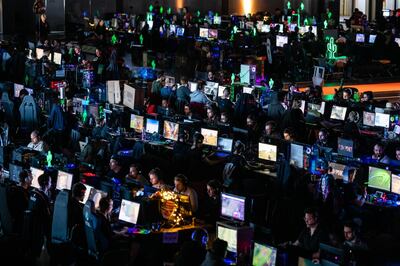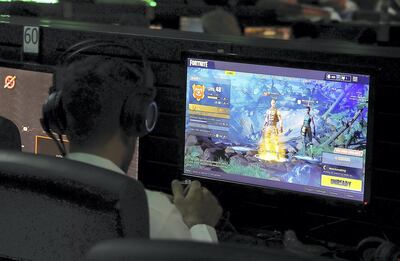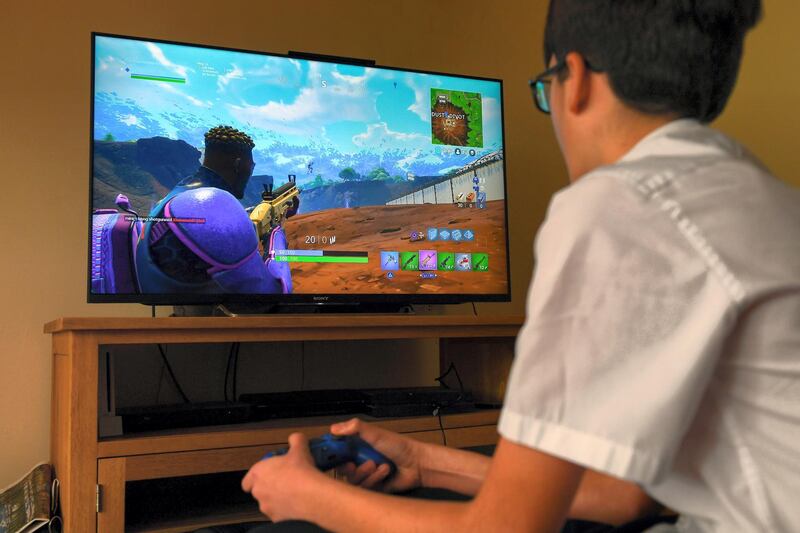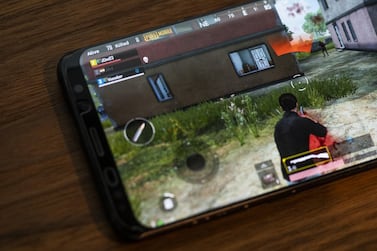It's not always easy to judge how much of something is too much. Too much food, time spent alone, exercise – these are all largely subjective notions that differ wildly from person to person.
Computer gaming, however, is an activity that precipitates more judgment than most. We have all known someone whom we feel has been immersed in a computer game more than they probably should; in some cases that person has been us. Occasionally, however, gaming can end up being prioritised over friends, family and work, causing relationships to break down and personal lives to crumble. This has been recognised by the World Health Organisation (WHO), which for 18 months has pondered the inclusion of "gaming disorder" in its International Classification of Diseases.
Last month, its 194 member states voted to adopt it, starting in January 2022. But academics, clinicians and gamers alike have expressed concerns that the pathologising of a normal hobby could have many unforeseen consequences.

"There are lots of things that people overdo," says Chris Ferguson, professor of psychology at Stetson University in Florida. "From a research perspective, there's no evidence that games are unique in this respect. What the data suggests is that we have a small number of people of all ages, around one per cent, who have difficulty regulating fun things. There are literally papers on dance addiction and fishing addiction, and there doesn't seem to be a mechanism that makes games more problematic."
Does it risk misdiagnosing people?
While the definition outlined by the WHO gives details regarding the length of time needed to make a diagnosis – it cites a "continuation or escalation of gaming despite the occurrence of negative consequences" and states that the behaviour is "normally evident over a period of at least 12 months" – Ferguson questions why gaming is being singled out in this way. "I buy the argument that there is a percentage of gamers who overdo it," he says, "but if these people have underlying depression or anxiety that's driving the problem, is this diagnosis clinically useful? And does it risk misdiagnosing people?"
The debate over the unhealthiness of computer gaming has raged ever since it became a popular hobby. As a new and poorly understood behaviour, some called for it to be curtailed or regulated – and analogies could be made here with the public reaction to much older technologies, including television sets or even telephones.
In the past decade, however, booming access to digital entertainment has led to a marked increase in the take-up of gaming, which in turn has caused those alarm bells to ring a little louder. The popularity of the game Fortnite, in particular, has caused public figures to speak out about the irresponsibility of its creation, warning of its propensity to destroy families. But it's the novelty of the behaviour that feeds this narrative, according to Ferguson. "Everything from food to books are designed to keep people engaged," he says. "People also have difficulty with the concept of effect size, of how much impact these mechanisms really have on us. Data hasn't emerged to suggest that watching or playing Call of Duty is more immersive than watching Game of Thrones."
The 'World of Warcraft' effect
There are many gamers who would disagree. Anyone who has spent time playing a game such as World of Warcraft will be aware of how they're constructed to be addictive, and how the drip-feeding of small bonuses for achieving small tasks can make people feel more rewarded in the game than they are in real life. There have been many cases of addictive games damaging the physical and mental health of gamers and those around them, and supports of the WHO's decision believe that dismissing such incidents as mere statistics can be damaging in itself. "First, it could lead to a reluctance on behalf of insurance and treatment providers to offer specialised and efficacious treatments," reads a 2017 paper published in the Journal of Behavioural Addictions. "Second, it could minimise the scientific community's motivation to progress research in the field ... Third, it exacerbates the negative consequences for the [gamers] by invalidating their personal experiences."

Seeing friends or family becoming over-absorbed in virtual spaces can be worrying, especially when there’s no consensus on whether the addiction is caused by the game or the circumstances of that individual. “I recently heard a Korean scholar argue that it’s not time spent on games that causes gaming disorder in Korean children, but rather a combination of academic stress and non-supportive parents,” Ferguson says.
He is also concerned that WHO's vague definition of gaming disorder risks creating a feedback loop. "A parent reads about gaming disorder, becomes upset about it, tries to take games away from their kids and their kids become upset," says Ferguson. "Then they bring their kid into therapy and say, 'My child is impaired socially because we keep having arguments over their gaming.' The way it has been defined is clinically useless, and it could perpetuate itself by tapping into moral panic."
From embraced to demonised
Given the strength of feeling that the WHO has blundered, how did this classification ever happen?
Ferguson believes there are a wealth of socio-political reasons for the demonisation of gaming. "Once you have a narrative like this, it's great news for pharmaceuticals, because you're going to start getting antidepressants prescribed to people," he says. "It gives politicians the opportunity for moral grandstanding, scholars the ability to claim that it validates their research agenda and great headlines to the media. You'll never see a headline saying 'Video games probably don't do anything bad – they're just fun'."
But people unquestionably play computer games to excess. You can read very moving accounts online of how people found themselves transformed into addicts, and regardless of the reasons for those addictions, those people need support. "While being [aware] that gaming is a pastime activity which is enjoyed by many millions of individuals ... we need to be respectful of the problematic gamers' experiences and offer the empirical foundations for targeted prevention efforts," concludes the Journal of Behavioural Addictions paper. Those aligned with Ferguson, meanwhile, refute the idea that the behaviour is caused by the game itself, no matter how compelling its characters, exciting its gameplay or thrilling its special effects.
The truth, it would seem, is more complex: a wealth of socio-economic factors cause people to seek solace in an activity, games provide them with some respite and poor mental health prevents them from breaking the habit. With or without the help of WHO, it's a mighty problem to tackle.







